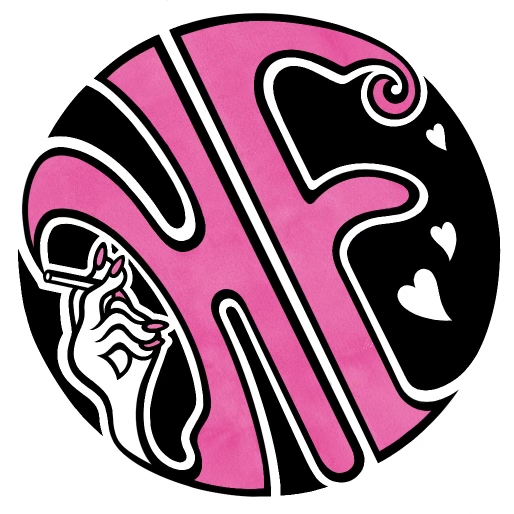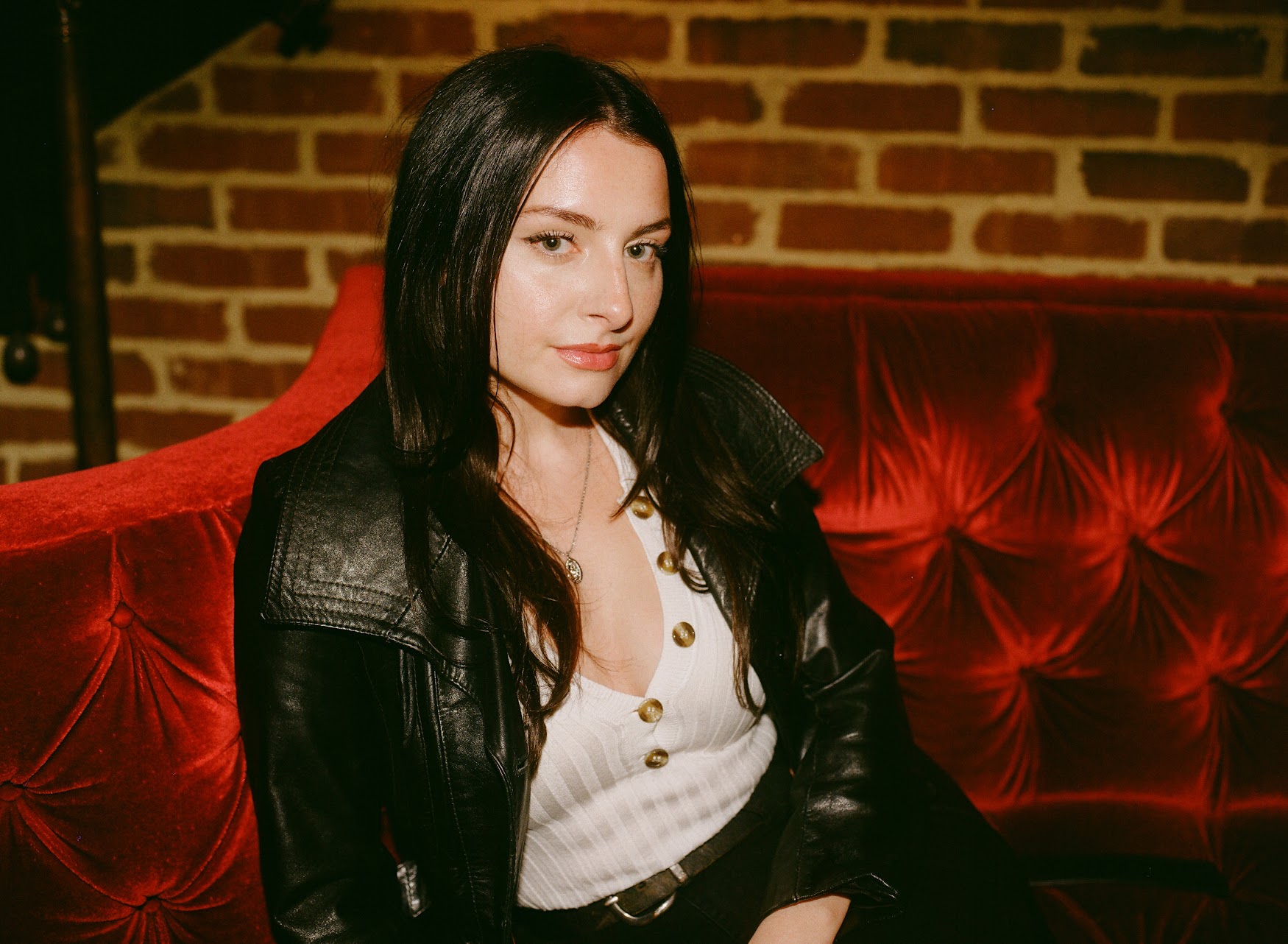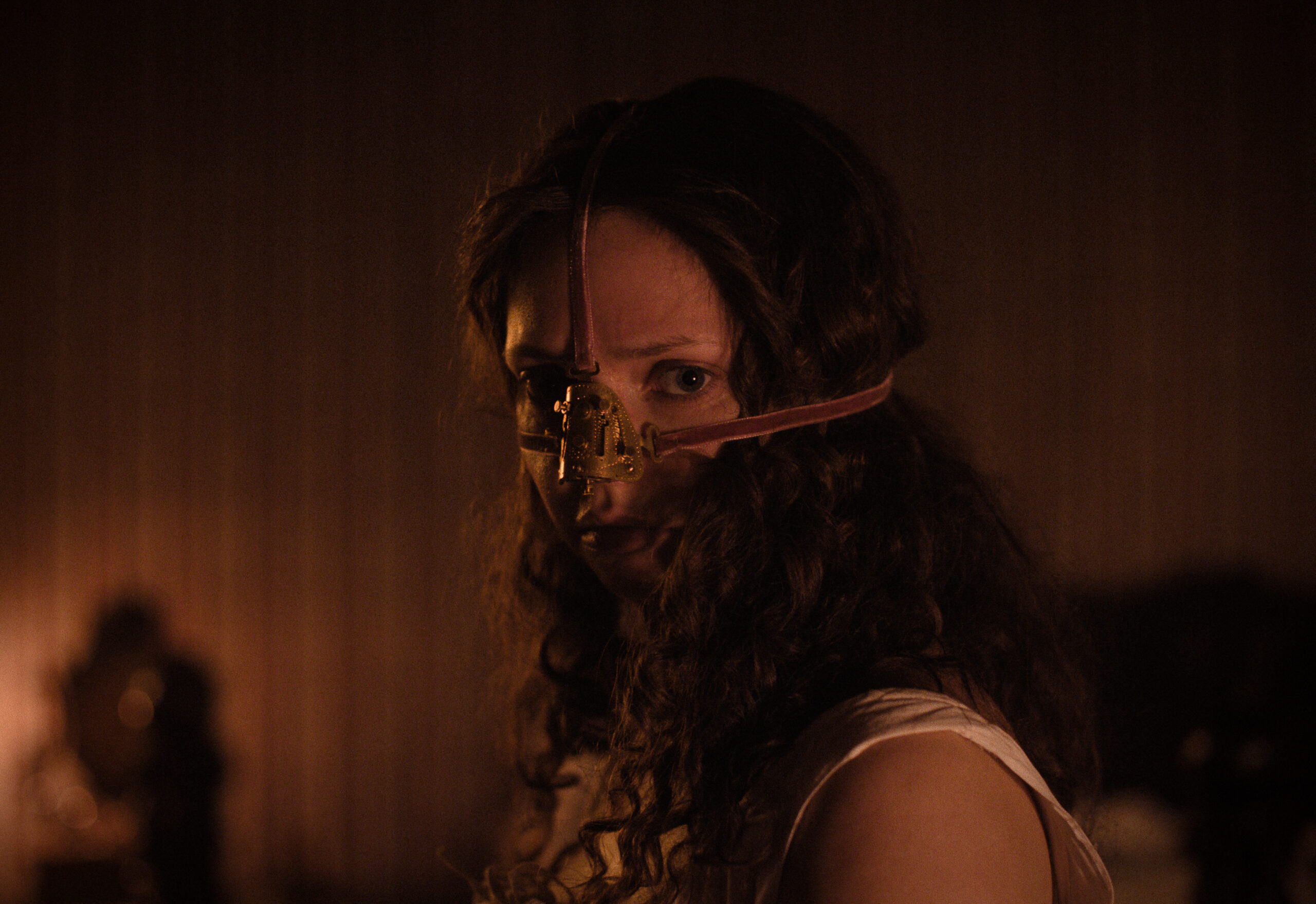Bailey (Nykiya Adams) fashions herself as a tough and troubled kid. She often argues with her dad, Bug (Barry Keoghan). She spends time with her older brother and his friends, and when they tell her that they are too rough-and-tumble for her, she pouts over missing out, confident she is grown enough.
Bailey’s life isn’t easy by any stretch. She lives in a ramshackle and graffitied flat. Bug loves Bailey, but she is often passed over; her very young dad’s too-fast mind has him focusing on marital bliss with a girlfriend of just a few months instead of his daughter. The upcoming wedding will be partially funded by a harebrained scheme involving a frog capable of producing a hallucinogenic when it “slimes.” Bailey’s biological mother lives in a different part of town with Bailey’s neglected younger siblings and a revolving door of cruel boyfriends. Bailey, in turn, finds that she can only be noticed when she acts out.
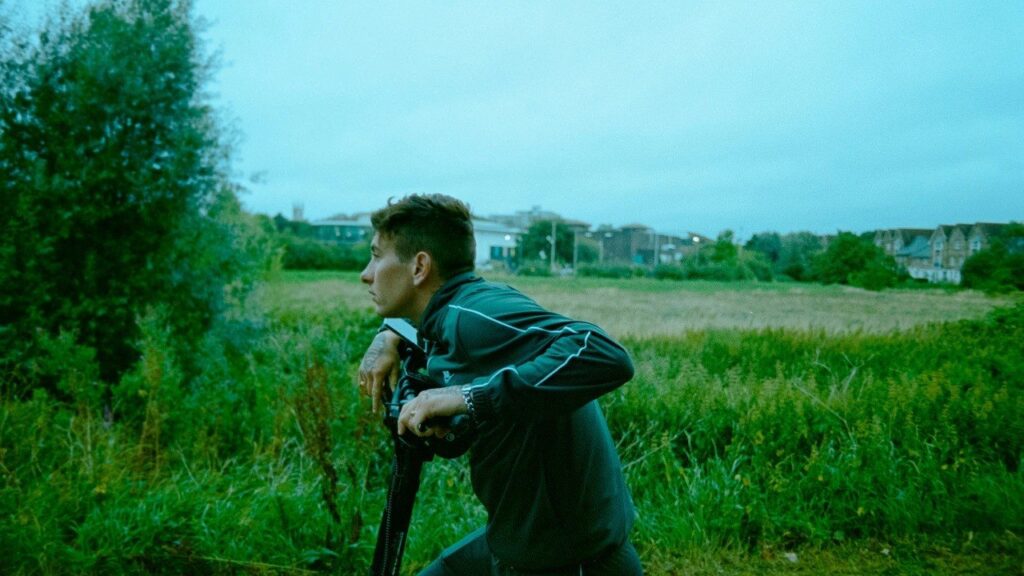
Bailey is also, despite her posturing as thick-skinned and delinquent, an incessantly imaginative tween, often galavanting about the fields around her town. Among the tumult, Bailey meets Bird (Franz Rogowski) in one of these fields, an eccentric wanderer who seems to have appeared out of nowhere.
Bird is tangibly grounded, of the earth, often visually backdropped against sky or sea or field. At the same time, the Bugs and the toads of Bailey’s life are perverted by an urban landscape — graffiti, scratchy-looking purple leopard-print jumpsuits as bridesmaid dresses, electric scooters. Bird is impish and youthful, but he’s also safe. His stature allows him to protect Bailey as she roams, without posing any threat to Bailey herself. Bird watches her from the top of the building across the way when she cannot sleep.
Bird devolves gently into a storybook fable that is at moments tangible and real, and at others seemingly built by Bailey herself as a coping mechanism. Bird is a reminder that to daydream out in the fields isn’t frivolous.
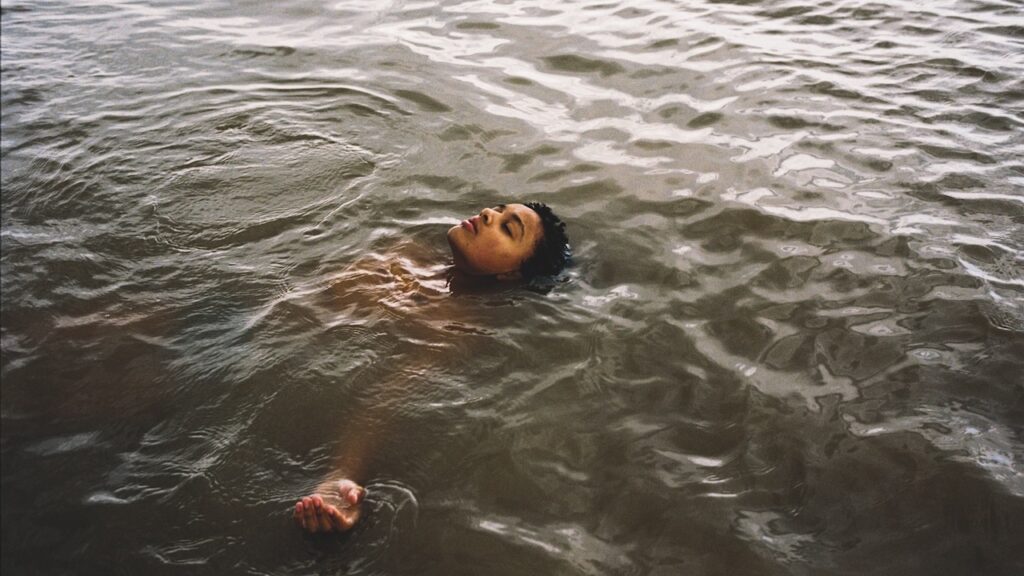
In Dee Lucas’ “Metatopia: Imagination Beyond Dystopia”, Lucas argues for the revolutionary value of the imaginative mind, writing that our current social structure “fails to understand that not every fantasy is functional, not every daydream is entirely separated from nuance.” Further, Lucas argues, imagination, “offers one the ability to see past the conditions of the present into the bigger picture of probable outcomes”. Bailey and Bird are willing to conceive of a world that is bigger than Bailey’s uncomfortable home life, her inability to meaningfully protect her younger siblings, or her struggle to connect with her father, even if she does not yet have the resources or capacity to execute meaningful solutions yet.
To daydream is to imagine lives better than our own, to imagine better lives for our siblings and our parents. To be imaginative is to hold the potential to puzzle through what it looks like to love genuinely and to learn how to give it to ourselves and seek it out with meaning. Bird knows the power of Bailey’s imaginative mind and cherishes it without denying any of her life’s exterior, multidimensional grit.
